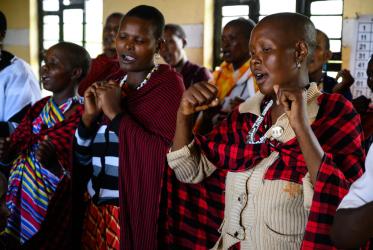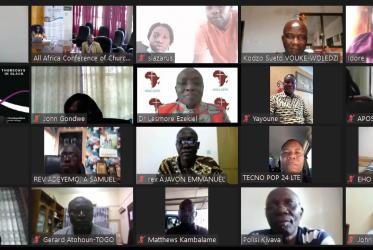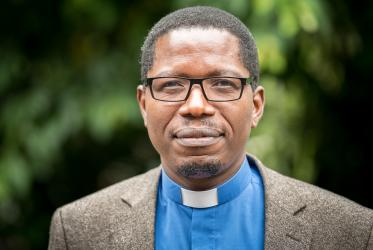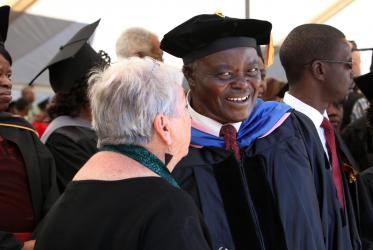Displaying 1 - 20 of 34
WCC remembers life of Patrick Matsikenyiri, a joyful song leader
15 February 2021
Young Africans are eager to grapple with challenges
09 January 2020
Knowledge of gender roles deepens in Togo
03 June 2019
Rev. Kenneth Mtata reflects on journey of transition in Zimbabwe
20 September 2018
#WCC70: Fellowship of women and men – with ups and downs
17 August 2018
















